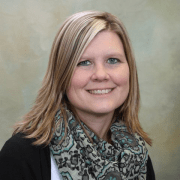Appreciative Advising: Advising with the Student in Mind
MedEdPearls June 2019: How can you incorporate appreciative advising into your medical and health professions courses to empower students through positive, strengths-based guidance?
The American Association of Colleges of Osteopathic Medicine annual conference was packed full of thought-provoking sessions, including an interesting discussion on appreciative inquiry (specifically appreciative advising).
Appreciative inquiry is about the search for the best in people, their organizations, and the strengths-filled, opportunity-rich world around them. Appreciative advising builds on this model and has six phases.
Disarm: Recognizing the importance of first impressions, create a safe, welcoming environment for students.
Discover: Utilize positive open-ended questions to draw out what they enjoy doing, their strengths, and their passions. Listen to each answer carefully before asking the next positive question.
Dream: Help students formulate a vision of what they might become, and then assist them in developing their life and career goals.
Design: Help students devise concrete, incremental, and achievable goals.
Deliver: The students follows through on their plans. The advisor is there for them when they stumble, believing in them every step of the way and helping them continue to update and refine their dreams as they go.
Don’t Settle: The advisor challenges the student to proactively raise the student’s internal bar of self- expectations.
Alternatively, another form of the appreciative inquiry is appreciative coaching. Similar to appreciative advising, appreciative coaching guides individuals through four stages—discovery, dream, design, and destiny. Both models inspire individuals to have an empowering view of themselves and their future and are especially useful for remediation of medical students.
Learn more about use of appreciative advising and coaching through the references below!
- Bloom, J. L., Hutson, B. L., & He, Y. (2008). The Appreciative Advising Revolution. Champaign, IL: Stipes Publishing.
- White, M.K. and Barnett, B. A Five Step Model of Appreciative Coaching: A Positive Process for Remediation. In: Kalet A, Chou LC, editors. Remediation in medical education: a mid-course correction.New York: Springer; 2014. pp. 265–281.
About the MedEdPearls Author

Machelle Linsenmeyer
EdD, NAOME
- Assistant Vice President for Institutional Effectiveness and Academic Resources, West Virginia School of Osteopathic Medicine
- Jean Bailey, PhD – Virginia Commonwealth University School of Medicine
- Carrie Bowler, EdD, MS, MLSCM (ASCP) – Mayo Clinic School of Continuous Professional Development
- Kristina Dzara, PhD, MMSc (Educators ’16; Assessment ’16; HCE 2.0 ’17) – Saint Louis University School of Medicine
- Shanu Gupta, MD, SFHM – University of South Florida Morsani College of Medicine and Tampa General Hospital
- Jennifer Hillyer, PhD – Northeast Ohio Medical University
- Larry Hurtubise, PhD, MA (HCE 2.0 '16) – The Ohio State University
- Anna Lama, EdD, MA – West Virginia University School of Medicine
- Machelle Linsenmeyer, EdD, NAOME (Assessment ’07) – West Virginia School of Osteopathic Medicine
- Skye McKennon, PharmD, BCPS, ACSM-GEI – Washington State University Elson S. Floyd College of Medicine
- Rachel Moquin, EdD, MA – Washington University School of Medicine
- Stacey Pylman, PhD – Michigan State University College of Human Medicine
- Leah Sheridan, PhD – Northeast Ohio Medical University
- Lonika Sood, MBBS, MHPE – Washington State University Elson S. Floyd College of Medicine
- Mark Terrell, EdD – Lake Erie College of Osteopathic Medicine
- Stacey Wahl, PhD – Virginia Commonwealth University School of Medicine
Harvard Macy Institute
Harvard Macy Institute
The Harvard Macy Institute educates, connects, and serves health care leaders around the globe by providing advanced faculty development programs, thought leadership, and impactful networking opportunities.
6 Programs

